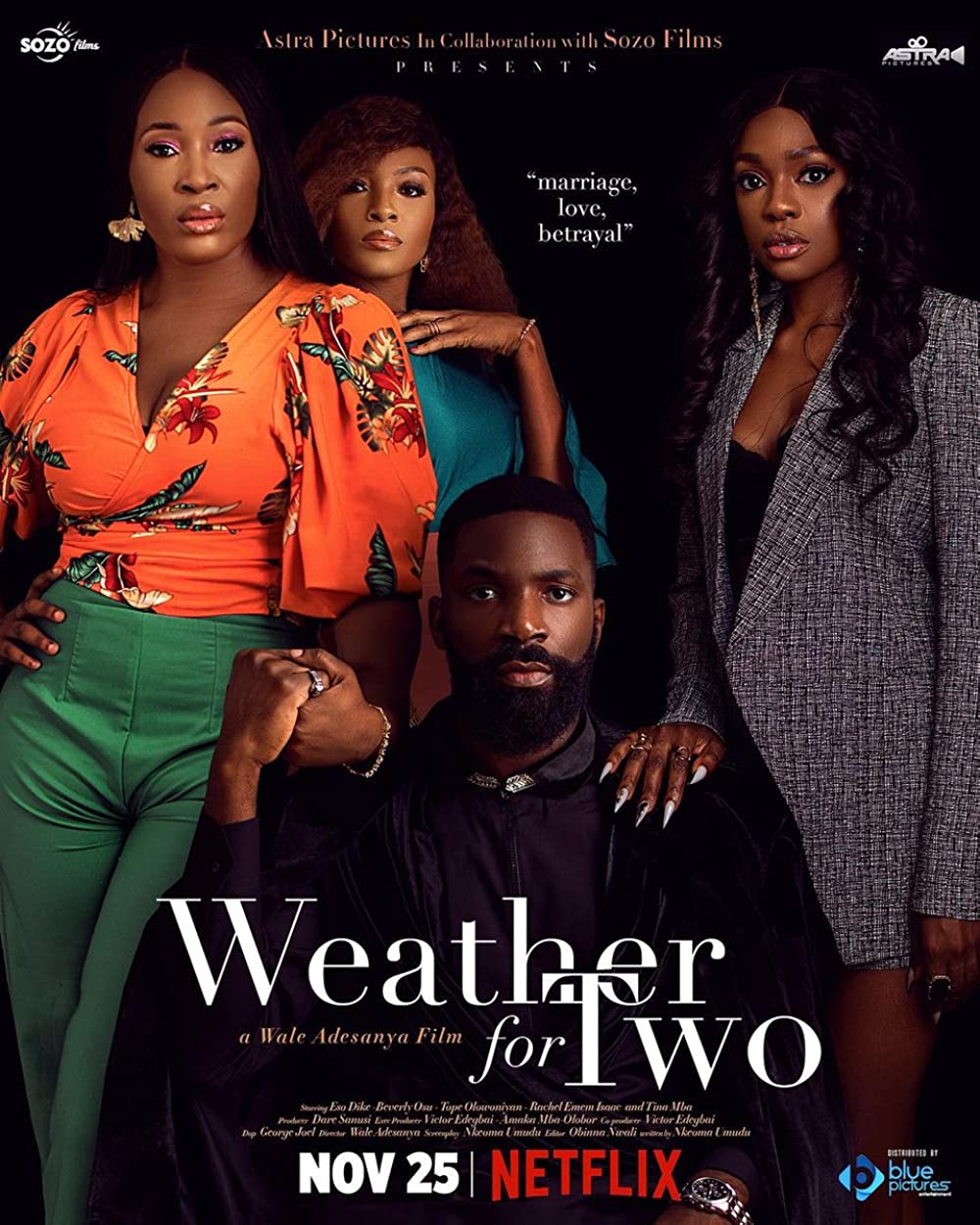
There are times when filmmakers intend to document realities and elicit relatability from their audiences, but a shift in the acting, cinematography or plot ends up pulling the movie off its balance, landing its filmmaking in an almost abysmal position.
This is the case with ‘Weather for Two’ as the filmmakers are widely off their berths.
‘Weather for Two’ is a Wale Adesanya-directed franchise that documents the experiences of a married man, Kolade, who cheats on his wife, Adesuwa, despite his relentless attempts to do right by his family. Written by Nkeoma Umudu and featuring a cast including Beverly Osu, Eso Dike, Tope Olowoniyan, Racheal Enem Isaac and Tina Mba, the movie explores the tropes of sex, vunelrability and marital challenges.
It is a glimpse into the realities of the plight of men caught in extramarital affairs. At least this is what is what the movie sets out to achieve. But upon execution, it fails abysmally in transforming its themes to presentable visualization on screen.
This failure starts right from its title. ‘Weather for Two’ is the most unfitting title I have ever seen for a Nollywood movie, as the movie does not even explore themes that could be an instigation towards the selection of the title.
For a movie with this title, it is expected that the movie would lean towards romance and sex, but instead it channels its narrative towards an ill-fated display of sexual debauchery.
Apart from the title, the movie misses its mark right from the start. From first glance, viewers are met with displays of a loyal wife, a cheating husband and a string of side chicks, all of whom are with the shaky assurance that their flings could turn into something solid with the cheating husband.
But the movie’s narrative comes off as rough, making it difficult for it to creatively deliver its message. The narrative makes absolute mockery of the characters in the movie, and the illogicality of its plot renders the quality of its acting worthless and useless.
The film also falls short in the delivery of its intended message. For example, the movie seems to largely humanize the actions of the Kunle, instead of fitting it into the moral context of the Nollywood audience, which is that extramarital affairs often ruin familial relationship.
Kunle is portrayed as a victim of his experience and circumstance, while Adesuwa seems to come off as an embittered wife who is conniving to alter her child’s DNA results
Also, a number of themes are raised but not pursued to their completion. For instance, the details of the death and inheritance of Kunle’s father are not fully disclosed, leaving a huge gap into the movie plot and allowing for a lot of guesswork.
Some of the scenes are totally unnecessary, like scenes where the hitman hired by Adesuwa turns out to be an informant for Kunle’s mother has no relevance, and adds no credence or credibility towards the movie’s sail off-plot.
The movie’s tipping point, where Kunle has a dreamy revelation that jolts him to his senses, proves to be absolutely bereft of coherence and logicality.
The fact that he has two concurrent dreams in one sleep, and that his realization is not fully explored before the end, botches any attempt for the movie to instill coherence in its plot. However, the acting is impressive, but is utterly hindered by the illogicality of the film’s plot.
‘Weather for Two,’ while exploring the intricacies of sex, vulnerability and marital challenges, fails to administer its plot towards ensuring relatability and understanding from its viewership.
Its irregularities in sustaining its plot narrative makes the movie a treatise that dithers and fails in its journey towards execution.
The movie is a perfect example of how a Nollywood movie ought not to be made, and it is a clear testament to how there is a need for improved storytelling for Nigerian filmmakers.
Critic’s Rating: 4 stars out of 10.





